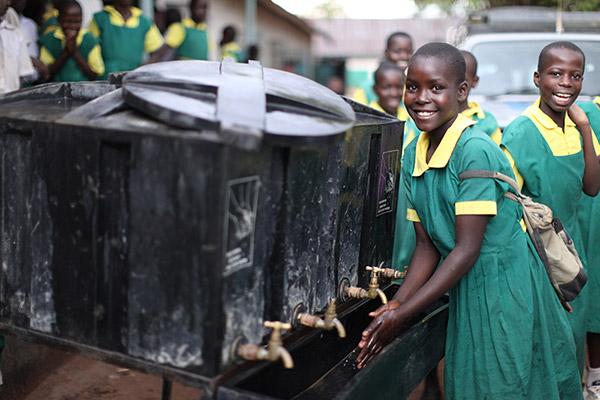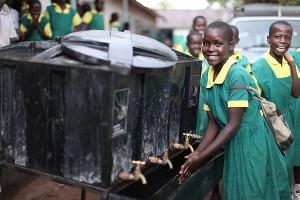Between July 15 and December 31, every specially marked bottle of Domestos sold in Australia will contribute directly to UNICEF’s global sanitation program.
An estimated 2.4 billion people – a third of the world’s population – live without clean and safe toilets. Of these, more than one billion have no access to toilets at all, forcing them to defecate in the open with alarming health consequences.
Australian Brand Manager for Domestos Tessa Black said Domestos’ mission, together with UNICEF, is to put an end to the spread of germs and provide access to clean and safe toilets for people worldwide.
“Unilever is very proud to be working with UNICEF to raise awareness about the global sanitation crisis and we urge Australians to help us to take action to combat it,” she said.
UNICEF Australia CEO Norman Gillespie says urgent action is needed to curb the disastrous global impact of inadequate sanitation.
“We thank Domestos for playing a leading role towards a global goal to bring clean and safe toilets to people in some of the world’s most disadvantaged places,” he said.
“By giving the issue this essential platform, we can work towards helping the 2.5 billion people without basic sanitation in 2015 – many of them children paying the price in lost lives, missed schooling, disease and poverty.”
To reach Australians, Domestos has embarked on a nationwide drive with the call to action, ‘Destroy germs, protect children’.
The brand is urging Australians to act now to help change the lives of those affected by the crisis, by providing clear ways for Australians to make a difference.
Domestos and UNICEF have been improving the lives of children for four years. The partnership supports UNICEF’s community-led sanitation program, promotes good hygiene practices and supports access to toilets. As a result of the partnership, 1.32 million people have been reached and 655,000 of these now live in communities with access to clean and safe toilets.
The most recent target of Unilever Foundation and Domestos is a commitment to help 25 million people gain improved access to toilets by 2020.






